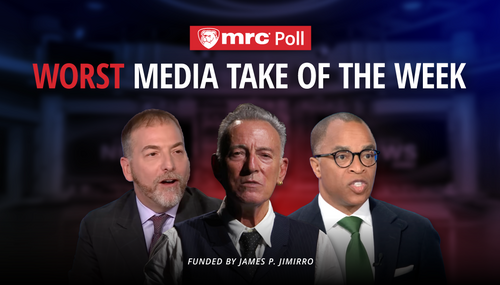After no huge caches of weapons of mass destruction were found in Iraq, the New York Times felt burnt by liberal accusations of being water-carriers for Bush in the run-up to the Iraq war -- an accusation based almost entirely on a handful of overly credulous pieces filed by former reporter Judith Miller.
These days, the Times is leaning heavily in the opposite direction, preening about how skeptical it has been about U.S. government evidence demonstrating Iran's role in providing bombs to Shiite militias in Iraq. Monday's headline makes that clear and the front-page story itself by James Glanz and Richard Oppel Jr. is hedged to the hilt: "U.S. Says Raid in Iraq Supports Claim on Iran, but Doubts Persist."
Such heavy-handed doubt is part of a pattern. A critical report in the Indypendent, a publication of the left-wing IndyMedia, may have been part of the impetus behind Times Public Editor Barney Calame's latest column, "Approaching Iran Intelligence With Intelligent Skepticism," where he defends his paper's highly skeptical coverage of links between Iran and Shiites militias in Iraq.
"Coverage of the American saber-rattling about Iranian intervention in Iraq posed an important test for The New York Times, given the paper’s discredited pre-war articles about Saddam Hussein’s weapons of mass destruction. And it has triggered a rash of complaints from readers who believed The Times was again serving as a megaphone for the White House.
Calame found his paper's coverage to be heavily skeptical concerning Bush administration's claims, and that that was a good thing:
"On balance, The Times’s E.F.P. stories of the past month -- especially the carefully qualified Baghdad briefing article -- reflected healthy levels of skepticism and editing vigilance."
According to Calame, the Times bent over backwards to self-consciously inject skepticism into its coverage:
"Failing to reach out for dissenting views was a pre-war shortcoming, The Times has previously acknowledged. So even after [reporter Michael] Gordon had 'nailed' key parts of the Feb. 10 article, according to Mr. Keller, editors specifically asked him 'to talk to places in government that had been skeptical of W.M.D.,' such as the State Department."
For more New York Times bias, visit Times Watch.




